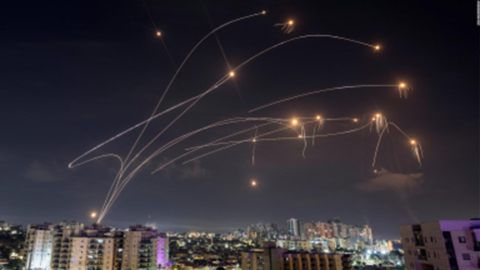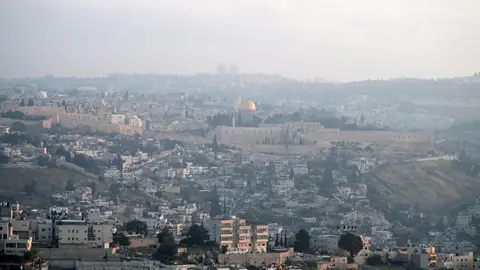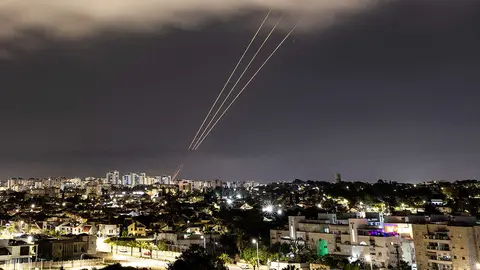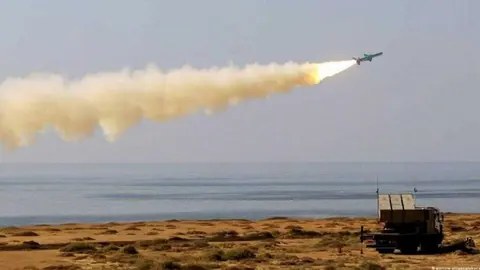An uncertain scenario
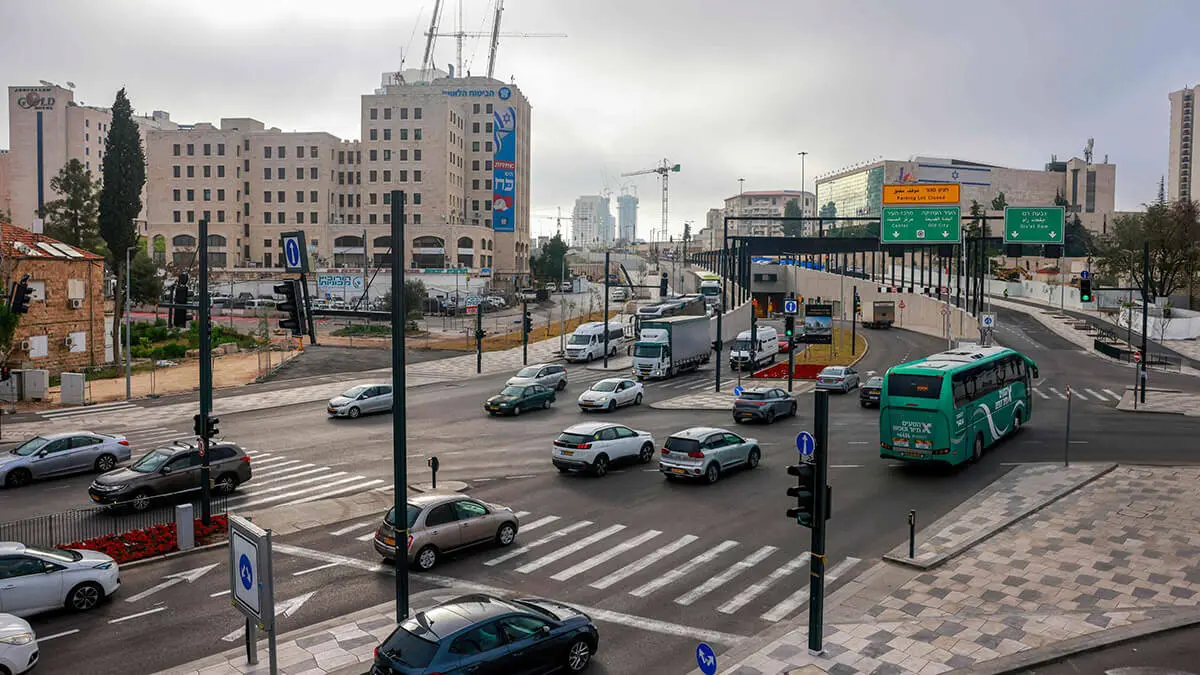
Reza Zahedi was a senior member of the Quds Force, responsible for its activities in Lebanon and Syria, which is the same as Hezbollah and pro-Iranian militias operating in and from Syria. This status made him a priority target for Israel, which considered him to be in charge of coordinating the attacks it is carrying out from the territory of these two neighbouring countries in support of Hamas. Along with Zahedi, other IRGC officers were also killed.
If there is one thing that is characterising the conflict initiated in the region on 7 October by Hamas, it is the delicate balance that all actors are trying to maintain in order to avoid escalation. Despite all the violence, death and destruction we are witnessing, one thing that all analysts stress is that no one wants a progression that would blow up the entire region. But on this occasion we seem to have come too close to the precipice, or perhaps not and, despite appearances, everything is more calculated than meets the eye.
The Iranian reaction to the attack was swift, and from the outset Tehran made it clear that it was not going to let the death of Zahedi and the officers alongside him go unnoticed. This opened the door to a number of possible options. Tehran's response was taken for granted by all analysts and intelligence services, and the Ayatollahs' regime only confirmed the information. The big question was not whether Iran would respond, but when and how. In risk analysis and the study of military operations, one usually works with two scenarios: the most likely and the most dangerous. Typically, one's own plan is developed to deal with the most likely and security is put in place to counter the most dangerous.
In this case, almost everyone, including me, ruled out direct Iranian action on Israeli territory from the outset. This was undoubtedly the most dangerous scenario, as it would mean the first direct attack by an Arab country on Hebrew soil since 1973. All eyes were therefore on Yemen, southern Lebanon, Syria and Iraq, from where the militias that control the Quds forces have the capacity to launch attacks against Israel with the means provided by Iran. This option allowed Tehran to carry out its response, send an internal message of firmness and at the same time demonstrate its capabilities without risking an Israeli response on its own soil.
But just 48 hours ago we witnessed, not without astonishment, the realisation of the most dangerous scenario. The sun was just setting when news of dozens of drone launches from Iran against Israel began to break. Two waves of drones were followed by waves of cruise missiles and ballistic missiles. The objective of the drones and cruise missiles was clear: to saturate Israeli defences in order to make way for ballistic missiles. The characteristics of this attack surprised everyone because of what it meant to see the Jerusalem sky lit up by the trails of drones and missiles in flight and the explosions caused by the activation of the Iron Dome, with a huge risk of hitting Palestinian and Arab populations or even the Al Aqsa Mosque itself.
The attack, however, from a purely military point of view, can be considered a failure, at least in terms of targets destroyed: almost ninety-five percent of the drones and missiles were shot down, only one Israeli airbase was hit, and the only reported casualty was a Bedouin girl who was wounded. The performance of the Iron Dome system together with the invaluable assistance of the UK, US and Jordanian air forces achieved an unprecedented victory in the face of such an attack.
Overnight, all sorts of news reports circulated, some intentionally false and others baffling, as a result of confusion over the targets of the attacks, with the Dimona nuclear complex being mentioned among them. The list of targets is still unclear, except for the air base that was hit, but it is clear that if Dimona was indeed among them, then Iran's gamble takes a different turn.
All of the above leads us to ask a key question: what was the real objective of the attack?
It is here that, after all that has happened in recent days, we once again enter the realm of possible scenarios, with no one daring to take anything for granted or for granted. What is more, we may be facing a chain of miscalculations that are pushing the situation into a dead end.
The Iranian regime is well aware of the capabilities of the Iron Dome system and its effectiveness, hence the first two waves of drones, and was therefore aware that it would be difficult for them to achieve their objectives, or at least with the desired degree of effectiveness. Therefore, and bearing in mind that it has not used all its capabilities (although it has used most of them), we cannot rule out that the real purpose was not to hit high-value targets in Israel, but to send a message for internal consumption and demonstrate to its population, its militias and the Palestinians that the attacks received will not go unanswered, and in the process to flex its muscles, perhaps in the hope that the more than obvious Israeli response will be sufficiently restrained so as not to escalate further. For if there is one thing that can be taken for granted today, it is that Israel will respond - it cannot not. In the region, failure to respond to aggression of this calibre is seen as a sign of weakness, and that is something Israel cannot afford.
But whether the aim was a certain "theatricality" for the sake of its gallery or to cause Israel as much damage as possible, Iran has put itself in a very awkward position. Firstly, because, apart from its natural allies, no Arab country has shown support for it, once again demonstrating, as after the Abraham Accords, its isolation. Second, once Israel's response is forthcoming, it will have to decide whether to take another step forward or to let it pass. In both cases, its deterrence capacity will be affected: if it does not respond, for obvious reasons, and if it does so as effectively as it did on Saturday night, it will have made it clear that its fangs are not as sharp. In any case, such a scenario would take its toll on the ayatollahs.
The ball is now in Israel's court, and we begin to speculate about other scenarios. Although a conversation with President Biden seems to have put the brakes on a first strike response, there is agreement that the level of response will not be commensurate with the damage suffered, but with the intensity of the attack. Iran's air defence capabilities are nowhere near those of Israel, so we can anticipate that whatever the response, the damage will be severe. For Israel will hit its targets. One very plausible possibility is that Israel will target the main complexes of the Iranian nuclear project, such as the uranium enrichment plant at Natanz or the component production and assembly plant at Esfahan, seizing the moment to put an end once and for all to the possibility of Iran acquiring nuclear weapons, something that would change the balance of power in the region.
This approach leads us to consider an option that, in view of the current situation, cannot be considered far-fetched. Israel was accused after the Damascus attack of unnecessarily escalating the conflict and going too far, even staunch allies did so. But Israel does not generally act without clear intent. And after all that has happened since 1 April, we have a country that is regaining part of the narrative and re-emerging as a victim after Saturday night's unconscionable attack, an attack that it was able to manage and control more than effectively and is now entitled to respond directly on Iranian soil, eliminating what for years has been its greatest nightmare, its nuclear programme. This leads one to think that, within the realm of possibility, it would not be so far-fetched to devise a very well thought-out and elaborate plan.
But everything has its ups and downs and, as I said on Saturday night, in the face of so much uncertainty and so many events that no one expected, there is only one certainty, and that is that the great collateral damage of all this is Ukraine. The fear of an escalation in the Middle East is once again taking Ukraine out of the spotlight and, precisely at a time when it urgently needs to reinforce its air defence system and replenish its missiles, what happened yesterday is happening. The consequences could be devastating because, if this replenishment was difficult before, it will be even more so now, because there is not so much production capacity and not so many countries capable of manufacturing missiles, not systems, but missiles, and a large part of these will be destined to replace what Israel has consumed. One can only hope that the situation will affect Tehran's support for Russia, although Russia's dependence on Russia is much less than Ukraine's dependence on Western support.
These are uncertain times in which any scenario is possible. Let us hope that we do not take the last fatal step towards the precipice.


